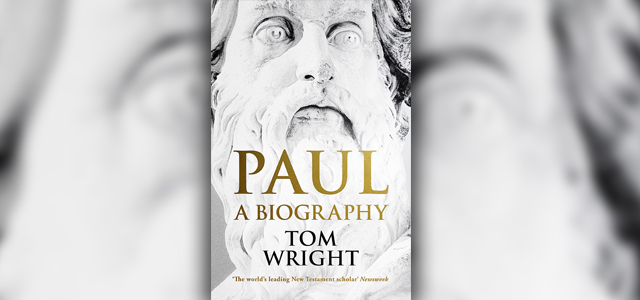Review: Paul, A Biography
Author: Tom Wright
A new book from Tom Wright is always notable, even at the pace he churns them out, but here he returns to probably his biggest topic, Saint Paul. This book is conceived as a popular biography, rather than a book on Paul’s theology, except that, inevitably, what he talks about when he talks about Paul is theology, as this was Paul’s life focus.
Wright says that we need to see Paul foremost through his status as a Jew now preaching Christ (as opposed to more modern psychanalytical readings of Paul), and this requires someone of Wright’s expertise, who knows the theology backwards, particularly the Jewish context of Paul’s theology, which has probably been Wright’s biggest refrain.
In this book he repeatedly shows how Paul’s letters refer back to and play with the Old Testament, in order to reiterate that Jesus is the fulfilment rather than destroyer of the Jewish scriptures.
By taking Acts and Paul’s letters chronologically, Wright shows how life and theology intermingles, and how differences in style can be explained by pressing issues. Paul is a deep, systematic thinker, but also driven by pastoral concerns. We see theology being made on the run by necessity, a new religion on the fly, except that of course Paul was not creating a new religion but preaching Jesus as Judaism’s climax.
As such, Paul had to negotiate remaining Jewish while also opening up the promises of Judaism to the whole world, which, paradoxically, meant he ended up offending almost everyone. A highlight of Wright’s biography is how he immerses us in the immediacy of Paul’s feeling his way through the implications of preaching a homeless, executed man as Israel’s Messiah, which required all of Paul’s restless energy, but also cost him. When we know the ending of Paul’s story, and the continuing story of Christianity, it is easy to forget how dispirited, afraid and doubtful Paul must have felt at times.
Wright’s biography is also a reminder not to restrict Paul’s theology to our own narrow interpretations, and dichotomies of social and personal, spiritual and practical, theological and pastoral. Wright also cautions against reading Paul as mainly answering medieval Protestant questions. Paul’s message is wider and all-encompassing.
Nick Mattiske














